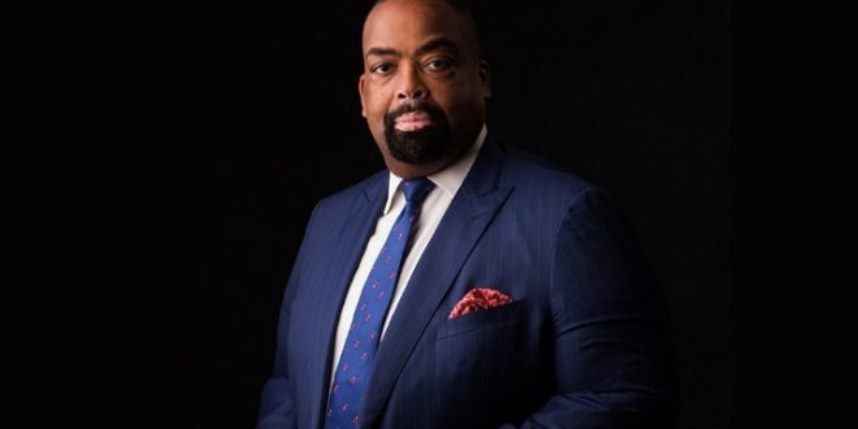Vox Populi Foundation for Leadership, a non-governmental organization has appointed Prince Chukwudi Oli as its Director-General. The Foundation has also appointed Mr. Olasunkanmi Emmanuel Oluwabiyi, a young lawyer, as its Administrative Officer. According to a statement made available to CITY LAWYER, the appointments are designed to position the foundation to attain excellence by influencing and...
BREAKING NEWS: NNAMDI KANU DISTANCES IPOB FROM KILLINGS, URGES CALM
The leader of the pro self-determination group, Indigenous People of Biafra (IPOB), Mazi Nnamdi Kanu has distanced the group from the ongoing killings in the South East and “pleaded that everyone should remain calm and peaceful,” his lawyer, Mr. Maxwell Opara has said. In a statement he made available to CITY LAWYER following his visit...
ODILI, AKPATA, OTHERS FOR ANAMBRA NBA LEADERSHIP SYMPOSIUM
Justice Mary Odili of the Supreme Court of Nigeria and Nigerian Bar Association (NBA) President, Mr. Olumide Akpata are among the dignitaries expected at the Leadership Symposium of NBA Anambra Branches. Scheduled for October 8, 2021 at Oma Event Centre, Awka, Anambra State, the summit has as its theme, “Leadership in Contemporary Times, Challenges and...
4,500 LAWYERS ATTEND NBA ENERGY PROGRAMME
No less than 4,500 lawyers registered for the recently concluded “Introductory Training on Energy Law and Policy for Lawyers” course organized by the Energy Faculty of the Nigerian Bar Association Institute of Continuing of Legal Education (NBA-ICLE). Disclosing this in a statement made available to CITY LAWYER, NBA Publicity Secretary, Dr. Rapulu Nduka thanked the...
BREAKING: SUPREME COURT JURIST, OSEJI IS DEAD
Nigeria’s Supreme Court jurist, Justice Samuel Chukwudumebi Oseji is dead. According to a trending post by factional Chairman of the Mid-West Bar Forum, Chief Chike Onyemenam SAN, the news was broken to lawyers who were at the Supreme Court today for their cases. He said: “Good morning my beloved Members of the Mid-West Bar Forum....
HAUWA: ‘NBA HAS LOST A GREAT LEADER, BRIDGE BUILDER’ – GADZAMA
The Chairman of the Body of Benchers (BoB) Mentoring Committee for Young Lawyers, Chief Joe-Kyari Gadzama SAN has described the death of factional Nigerian Bar Association, Abuja Branch Chairman, Dr. Hauwa Shekarau as a huge loss to the legal profession. In a moving tribute by the pioneer Chairman of the NBA Section on Public Interest...
SPIDEL CONFAB ON CONFLICTING ORDERS HOLDS TODAY
UBANI EXPLAINS CHOICE OF TOP SPEAKERS The Chairman of the Nigerian Bar Association (NBA) Section on Public Interest and Development Law (NBA), Dr. Monday Ubani has given insights on why the section chose A-List speakers for its webinar on the recent spate of ex-parte orders by courts. The virtual conference holds tomorrow at 4 pm....
TOP LAW ENTITY NOW HIRING: DEPUTY ADMINISTRATOR
Harbour Human Capital Solutions (HHCS) Limited invites applications from suitably qualified persons for the post of DEPUTY ADMINISTRATOR to manage the Secretariat of a reputable Legal establishment. The successful candidate will be based in Lagos. Accountabilities: Efficient administration of the Secretariat Management of Logistics Travel and Guest arrangements Office facilities and vendors’ management Skills/Knowledge Requirements:...
$418M JUDGMENT DEBT: GADZAMA WRITES MALAMI, DISTANCES SELF
Leading litigator, Chief Joe-Kyari Gadzama SAN has distanced himself from the controversial $418 million Paris Club judgement debt debacle, saying that he never authored any letter to the Attorney-General & Minister of Justice, Mr. Abubakar Malami SAN on the matter. In a letter dated September 9, 2021 and made available to CITY LAWYER, Gadzama pooh-poohed...
SPIDEL PARLEY: SUPREME COURT JURIST, AKPATA, OTHERS X-RAY CONFLICTING JUDGEMENTS
Former Supreme Court jurist, Justice Bode Rhodes-Vivour; Ondo State Governor, Mr. Rotimi Akeredolu (SAN) and former Nigerian Bar Association (NBA) President, Mr. Joseph Daudu (SAN) are among the cream of jurists that have confirmed attendance at the virtual conference by NBA Section on Public Interest and Development Law (NBA-SPIDEL) on the spate of conflicting ex-parte...










